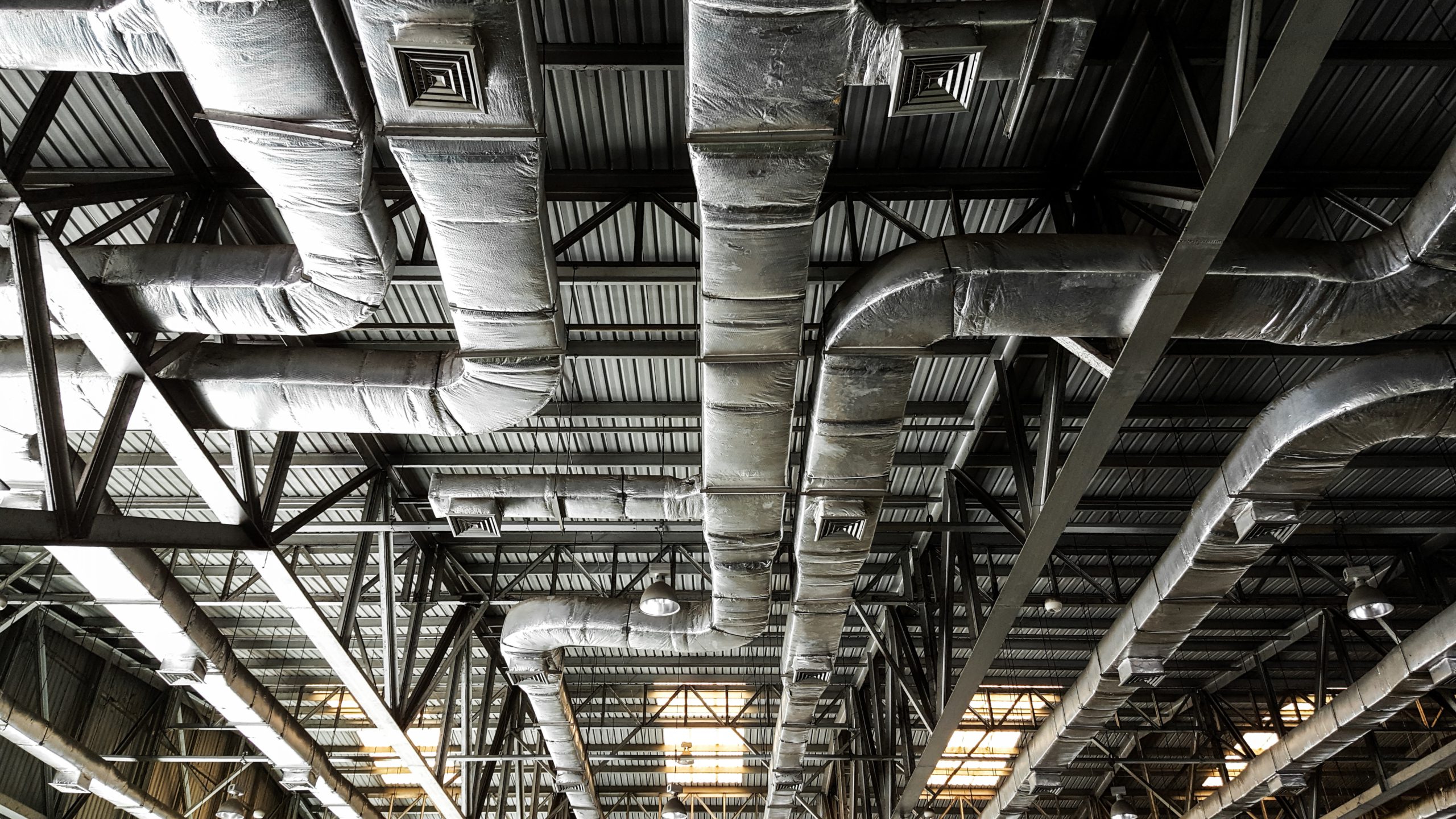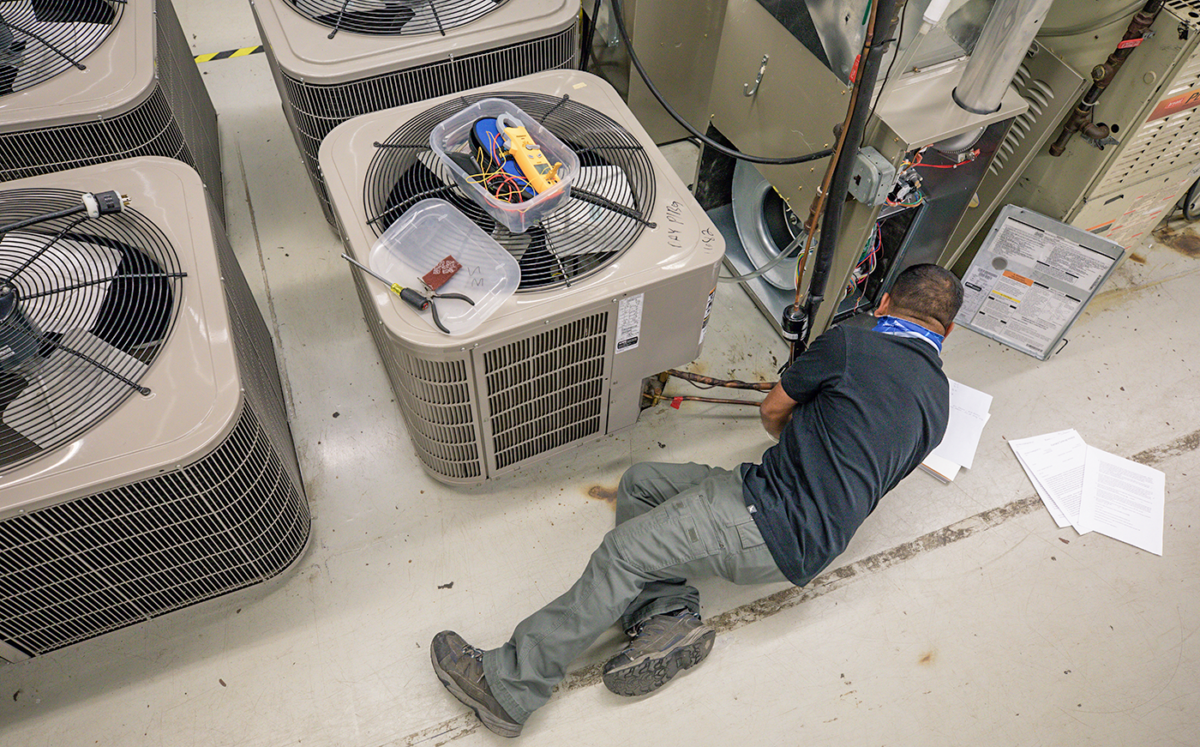HVAC Contractor for Reliable Heating and Cooling Solutions
HVAC Contractor for Reliable Heating and Cooling Solutions
Blog Article
An In-Depth Appearance at Cooling And Heating Solutions and Their Effect On Power Effectiveness and Cost Savings
With technical advancements like smart thermostats and high-efficiency elements, the potential for maximizing system efficiency is large. As we check out the intricate relationship between Cooling and heating systems and functional prices, including the shift towards environmentally pleasant alternatives, the question develops: just how can these strategies be properly executed to make the most of both ecological and financial advantages?

Significance of Heating And Cooling Solutions
a/c systems are an essential component of modern-day structures, playing a vital duty in keeping comfortable and healthy indoor atmospheres. These systems, including heating, air flow, and air conditioning, are crucial for controling temperature, humidity, and air top quality, therefore making sure the wellness of passengers. Efficient cooling and heating systems contribute significantly to creating an optimum interior environment, which is crucial for both residential and business spaces.
In commercial structures, a/c systems are essential to offering a risk-free and efficient setting. By managing indoor climate conditions, these systems assist avoid the growth of mold and mildew and the spread of airborne contaminants, hence securing the health and wellness of employees and clients. In addition, in domestic setups, cooling and heating systems boost living conditions by offering constant thermal comfort and boosting interior air quality, which is vital for overall wellness.
Furthermore, the design and upkeep of a/c systems have a direct influence on power intake and functional prices. Correctly made and maintained systems can dramatically minimize energy usage, leading to lowered utility expenses and a smaller carbon footprint. The effectiveness of these systems therefore plays a vital function in advertising sustainability and energy conservation within structures, highlighting their value in the contemporary architectural landscape.
Advancements in A/c Innovation
Advancement in heating and cooling technology is changing the way structures take care of indoor environments, ushering in a brand-new era of efficiency and control. Current developments have concentrated on maximizing power usage while boosting customer convenience. One noteworthy advancement is the integration of smart thermostats, which make use of expert system to learn tenancy patterns and adjust temperatures appropriately, minimizing unnecessary energy use.
Variable Cooling Agent Flow (VRF) systems stand for an additional substantial leap forward. These systems permit precise temperature level control in different areas of a building, boosting convenience and decreasing energy waste. VRF technology is specifically helpful for huge business spaces, using adaptability and scalability.
Furthermore, the arrival of Web of Things (IoT) gadgets has actually changed heating and cooling systems right into interconnected networks qualified of real-time information collection and analysis. This connectivity makes it possible for predictive upkeep, guaranteeing systems run at peak efficiency and reducing unanticipated downtime.
Moreover, innovations in materials and layout, such as the usage of high-efficiency coils and compressors, have boosted general system efficiency - Heating Contractor. The adoption of environmentally friendly cooling agents also underscores the market's dedication to sustainability
These technological developments are crucial in lowering operational expenses and ecological impact, establishing new requirements for building climate management.
Heating And Cooling Upkeep and Efficiency
Ensuring optimal efficiency of a/c systems prolongs beyond technical improvements; it likewise depends upon reliable upkeep techniques. Regular upkeep is critical for maintaining efficiency, decreasing power intake, and prolonging the life expectancy of a/c systems. The key objective is to guarantee that all components function at their peak capacity, consequently lessening power waste and keeping consistent interior comfort degrees.
Regular maintenance jobs, such as cleaning or replacing air filters, examining refrigerant degrees, and evaluating ductwork for leakages, are crucial for stopping unneeded pressure on the system. Clogged or dirty filters can obstruct airflow, triggering the system to work tougher and take in more energy. Also, insufficient refrigerant degrees can minimize cooling down performance, bring about higher functional costs.
Additionally, periodic examinations by qualified specialists can recognize potential issues before they intensify into pricey Check Out Your URL repair work or system failings. These examinations commonly include checking electrical links, adjusting thermostats, and ensuring the overall honesty of the a/c system. By addressing minor troubles early, organizations and house owners can avoid unanticipated malfunctions and improve energy efficiency.
Cost-Effective Heating And Cooling Solutions
For those wanting to get one of the most out of their ventilation, air, and heating conditioning systems without damaging the financial institution, checking out cost-effective cooling and heating options can make a considerable distinction. One instant procedure is to buy programmable thermostats, which allow individuals to set particular temperature levels for different times of the day, maximizing energy use and decreasing unneeded consumption. By automating temperature level changes, property owners can accomplish substantial financial savings on energy expenses.
Regular maintenance is another crucial element of cost-efficient cooling and heating monitoring. Guaranteeing that filters are cleaned or changed frequently, ductwork is sealed, and units are serviced by professionals can protect against pricey fixings and boost system long life. Precautionary upkeep not just maintains system performance yet additionally helps in avoiding unexpected breakdowns that can cause expensive emergency repair services.
In addition, retrofitting existing systems with energy-efficient elements, such as variable rate electric motors or high-efficiency compressors, can be a prudent investment. These upgrades boost functional effectiveness, reduce power use, and can frequently be carried out at a fraction of the expense of a complete system replacement.
Environmental Impact Decrease
Reducing the environmental effect of HVAC systems is crucial in today's pursuit of sustainable living. Cooling and heating systems are considerable factors to energy usage, representing virtually 40% of energy use in commercial buildings. This energy need commonly depends on fossil fuels, causing greenhouse gas discharges and environmental degradation. Transitioning to a lot more efficient systems, such as those using eco-friendly power sources, can substantially reduce these influences.
Technological developments in a/c layout and procedure, consisting of the integration of smart thermostats and energy-efficient heatpump, are essential in lowering carbon footprints. These advancements enable maximized energy usage, lessening wastefulness and enhancing total system performance. Additionally, embracing regular maintenance methods makes certain HVAC systems operate at peak efficiency, further cutting unneeded energy intake.
In addition, using ecologically friendly cooling agents is crucial, as typical cooling agents, like CFCs and HCFCs, have been eliminated due to their ozone-depleting buildings. Modern choices, such as hydrofluoroolefins (HFOs), deal lowered environmental dangers, get more straightening with international look at this website environmental procedures. By embracing these lasting methods, a/c solutions can play a transformative role in reducing environmental impacts, advertising energy efficiency, and fostering a more lasting future.
Final Thought

Moreover, the design and maintenance of Heating and cooling systems have a direct influence on energy intake and functional prices. Routine upkeep is important for maintaining performance, decreasing energy usage, and prolonging the life period of Cooling and heating systems. HVAC systems are considerable factors to power consumption, accounting for nearly 40% of power usage in commercial structures. Furthermore, embracing regular maintenance practices makes sure HVAC systems run at peak performance, additional cutting unnecessary energy usage.
The shift to eco pleasant Cooling and heating systems better decreases functional prices and promotes sustainability. (Heating Contractor)
Report this page